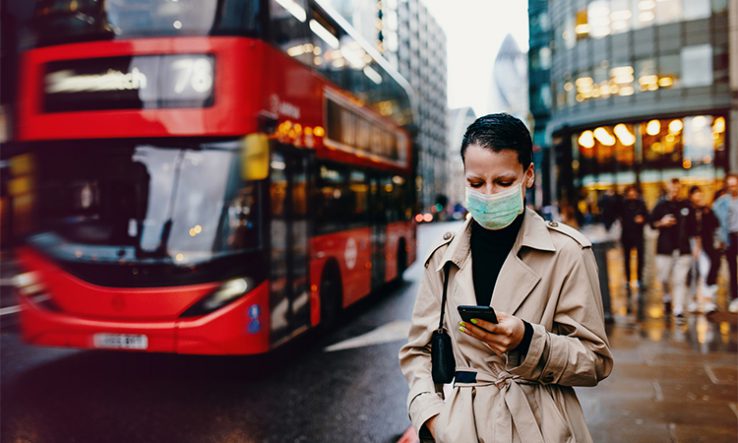
Mask-wearing, social distancing and closing borders helped control spread of virus, Royal Society review finds
Implementing several non-pharmaceutical measures was an “unequivocally” effective way of reducing the spread of Covid during the pandemic, a study has found.
Non-pharmaceutical interventions are measures to reduce the spread of disease that do not involve drugs or vaccines. Also known as social and public health measures, NPIs include mask-wearing, social distancing and closing international borders.
The Royal Society released on 24 August a major review of scientific evidence gathered during the pandemic on the effectiveness of NPIs.
When taken individually, the measures had a positive but limited impact on reducing Covid transmission, the study found. But the evidence of reduced Covid spread was “clear” when countries implemented a combination of several NPIs, the study revealed.
Implementation of several NPIs proves effective
“Covid-19 was the first global pandemic in human history where the use of non-pharmaceutical interventions bought time for the development of effective treatments and vaccines that saved many lives,” said Mark Walport, chair of the report’s expert working group and foreign secretary of the Royal Society.
“There is sufficient evidence to conclude that early, stringent implementation of packages of complementary NPIs was unequivocally effective in limiting Sars-CoV-2 infections.
“That does not mean every NPI was effective in every setting, or at all times, but learning the lessons from the wealth of research generated in this pandemic will be key to equipping ourselves for the next one.”
Better off for next time
Despite revealing the effectiveness of packages of NPIs for reducing disease spread, the report points out that their use can have “adverse, personal, educational, and economic consequences”.
But the report highlights that NPIs are typically the only controls available in the early stages in responding to a newly emerging disease, before the development of drugs or vaccines.
Pro vice-chancellor of research at South Africa’s University of KwaZulu-Natal Salim, Abdool Karim, who was one of the researchers behind the report, explained that scientists expect there will be more pandemics with new diseases.
“If we do not know what the organism is, the ability to test and create vaccines takes time. In between, we are going to need to use interventions like NPIs.
“It is these kinds of reports that give us the ammunition and evidence [we need] so that we can be better informed as we take on the next pandemic.”
The Royal Society’s report draws together the findings of evidence reviews on six NPIs: wearing masks; social distancing; test, trace and isolate; travel restrictions; environmental controls; and communications.
No surprises here
Julian Tang, a clinical virologist at the University of Leicester, said the report’s findings are welcome, even if “nothing surprising”.
“These interventions are actually all just common sense—even if you are not quite sure exactly how the virus transmits predominantly—because this has been known for various infectious organisms for hundreds of years.”
He nevertheless welcomes the findings of the study, saying he hopes “we will all heed these for the next pandemic”.